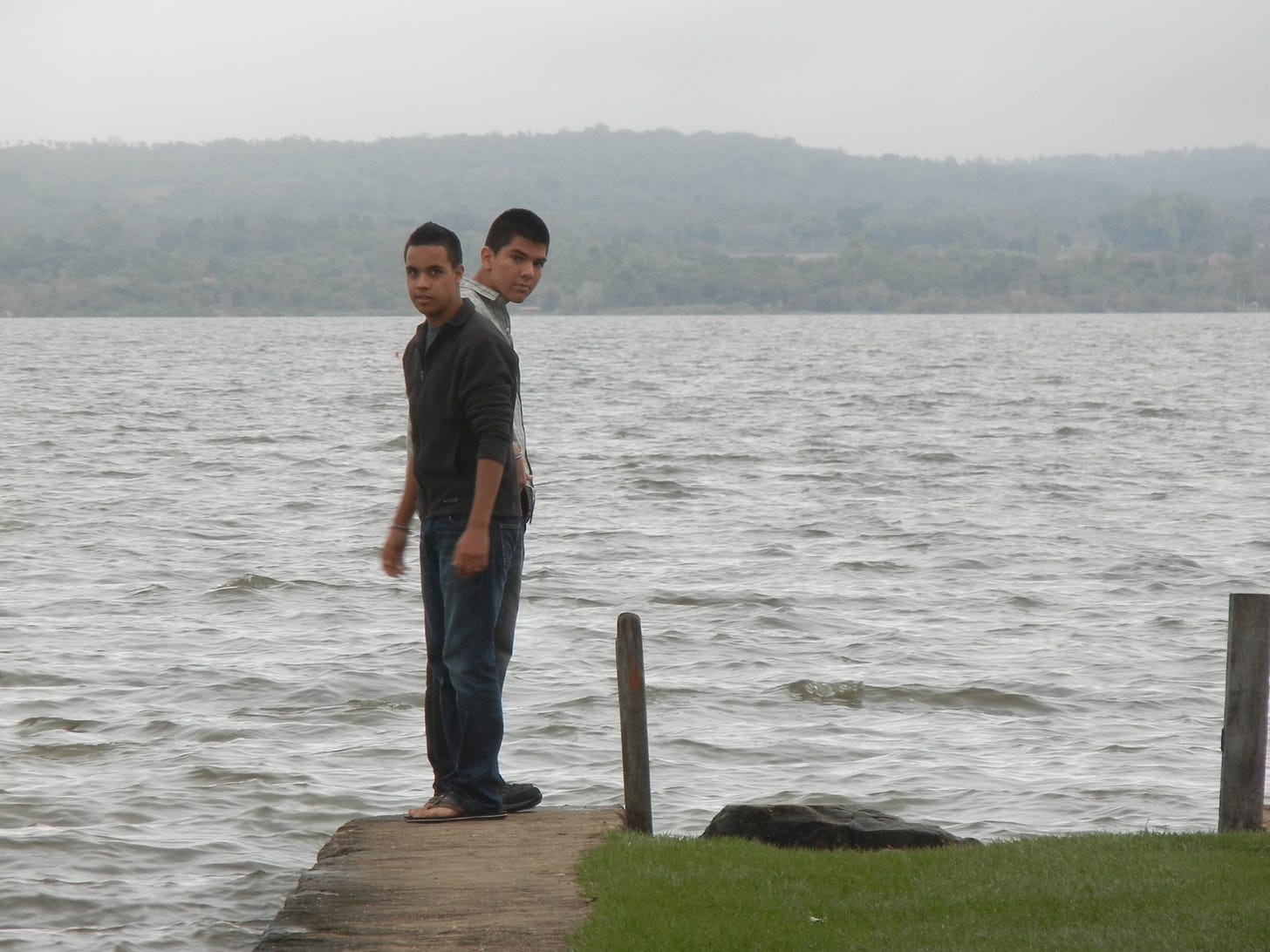Last week I had a piece published in Cognoscenti. After months of trying to learn the skill of article-writing and pitching, this was my first success, and although I did pitch it and provide the supplemental material (with permission of course), I still wanted to fight people when I saw my kids’ pictures posted on a big-time news outlet. Like, that’s a little intrusive, people…
The article was in response to the gutting report from The Associated Press in collaboration with Frontline stated that untold numbers of South Korean children had been stolen from their families, trafficked into international adoption through widespread fraud.
I’ve been writing my book now for a couple of years, and though I now need to do a reshuffle of a number of sections, it’s pretty much done. The book talks about taking my sons back to Paraguay to meet their birth mothers and families, and the role babies play in our lives. tl;dr it’s very complicated.
When I wrote the piece for Cognoscenti, I worried that I was writing about only one facet of a billion-faceted subject, and that people would misunderstand my feelings about adoption. Then I realized that was only sort of possible, because I no longer know exactly how I feel about adoption, so go ahead - misunderstand that.
But I know exactly how I feel about my sons. They are the most important people in the world to me.
Most people’s responses to the article have been very kind and encouraging, and lots of people have said they’ve never thought about adoption in this way before. That’s gratifying. Some people are very angry with me. The people who are angriest tend to be, it seems, people who have not adopted nor been adopted, but want to know what to do with “all the children that will be left without homes” if my words somehow put an end to adoption.
The point being missed is that with the right financial and social support, without oppressive religious and social mores, with adequate health care for women and the choice to carry a baby or not, “all those children” might not be in orphanages or up for adoption at all.
Readers have generally also blamed the United States for this atrocity, but while the relative bounty and privilege of the adoptive parents in the US (and Europe) did make international adoption possible, it was the South Koreans who did this, and that bears looking at. Park Chung Hee, rebuilding after the Korean War, dedicated 40% of the country’s budget to the military, and 2% to social services. Korean culture didn’t recognize the children of GIs as “Korean,” and when adoption turned out to be a cash cow, when they ran out of mixed-race babies, they just kept going. The US’s genuinely humanitarian language legalizing international adoption in cases of “being orphaned, lost, or abandoned” made it incredibly easy for Korea to declare all babies abandoned, especially when Park Chung Hee decreed all the safeguards no longer necessary. He was raking in so much with the trade, and the US, largely Christian adoption agencies were getting fat as well. Nobody had any incentive to stop, or even look for any problems with the process.
This created a model for all other international adoption programs. You don’t have to be American to be terrible.
Absolutely the US government should have noticed and put a stop to the volume of babies coming in. Absolutely the loathsome practices of the Holts and other predatory adoption agencies needed to be shut down. There is plenty of blame to go around.
But South Korea sold its children in the name of racial purity, greed, and nationalism.
And other countries thought that was a fantastic idea.
I am only one point on the adoption triad. First families, adoptees, and adopters hold one corner each of the triangle, and each of us has to process this news, along with all the other labyrinthian thoughts and feelings that adoption creates.
“The thing about adoption,” I say in my book, “is that none of it makes any sense at all.”
The other thing about adoption is that new and changing thoughts and feelings develop over time. Just when you think you understand, you don’t.
What I do understand is the gratitude, admiration, and respect I have for my sons, who’ve encouraged me to write about all this for the last couple of years. It is not my story, it is our story that I am telling, and that would not be possible without their support.






I admire your honesty and bravery; not only in the difficult tasks of soul searching and assuming personal accountability, but in sharing your vulnerability in a medium that is often hostile to nuance and multiple points of view. Your sons are also amazing.
“I no longer know exactly how I feel about adoption, so go ahead - misunderstand that.
But I know exactly how I feel about my sons. They are the most important people in the world to me.